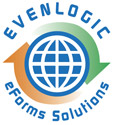
In formulating the most appropriate PDF forms solution for a given application, there are a number of issues to consider and choices to make, each having advantages and disadvantages. Some of these are identified and discussed below.
- Which forms technology to use, i.e. LiveCycle or Acroforms
Adobe LiveCycle Designer is used to create LiveCycle forms (XFA forms) normally from scratch and to design both the form content and data fields. This allows intelligent, dynamic forms to be created that have automatically expanding fields, variable content and re-pagination capabilities.
AcroForms (Acrobat forms) on the other hand, are created with Adobe Acrobat. An existing form design is used as the background (or ‘boilerplate’) and data fields are created by superimposing them onto the form. AcroForms are static in that all text and data fields are in fixed positions.LiveCycle forms are normally more expensive and time-consuming to develop than Acroforms. On the other hand, because they are dynamic, LiveCycle forms are more powerful. They are also simpler to update.
- Whether the forms are online forms or offline forms
With online forms, Adobe Reader runs in the user’s browser window and the form template and data are held separately on the server. The link to the server can be an https secure link. With offline forms, Adobe Reader runs standalone (not in a browser) and the PDF form is filled-in on the user’s local PC; although the form is completed offline, it can be either emailed or submitted online.
An https link is an effective way of making online form submissions secure. However, not all browsers fully support all aspects of handling PDF forms by Adobe Reader and there can sometimes be network or firewall issues. These issues are avoided with offline forms that are emailed.
- Whether the form/data is submitted online or by email
As mentioned above online forms are submitted online whereas offline forms can be submitted either by email or online.
- Whether just the data or the whole form is submitted at the time of submission
If just the data is submitted, then no server-side action is required to extract the data from the PDF. If the whole form is submitted, then further server-side action is required but a copy of the completed form is available server-side for archiving and emailing purposes.
- Whether data extraction is performed on the server or on a separate client computer
In those cases where the complete form is submitted, the data needs to be extracted. This can be performed on the server or batches of forms can be transferred from the server to a separate client computer where the data can be extracted using a utility such as Acrobat (licence restrictions prevent Acrobat being used on a server).
- Whether there is a requirement for users to be able to save part-complete forms
In the past, there has been a restriction imposed in Adobe Reader software, which prevented part-completed PDF forms being saved to a user’s local PC unless save functionality had been switched on for the form by applying a Reader Extensions licence, which is very expensive. One way around this was (and still is) to provide instead a mechanism to allow the part-complete form data to be saved to a web server from where it can re-populate the form being worked on.
The restriction on local form saving was eased a little a few years ago when Adobe enabled the save functionality to be switched on by Adobe Acrobat for a given form thereby extending the form’s rights. A limit of 500 permitted submissions was however imposed for such a form.More recently, in October 2012, Adobe released version XI of Acrobat and Reader. These and subsequent versions allow unlimited form saving by Adobe Reader XI to the user’s local PC without requiring Reader Extensions or Extended Rights to be applied to a form. However, this applies just to Acroforms; dynamic forms developed using LiveCycle Designer still require Reader Extensions or Extended Rights to be applied in order for the data to be retained when a form is saved on the local PC.
Referenceshttp://www.evenlogic.co.uk/forms: Evenlogic’s PDF forms website (includes links to two ebooklets containing more information on this topic plus other useful links).
http://blogs.adobe.com/livecycle/2013/05/understanding-reader-extensions-licensing.html: An Adobe blog entry that explains more about Reader Extensions.

